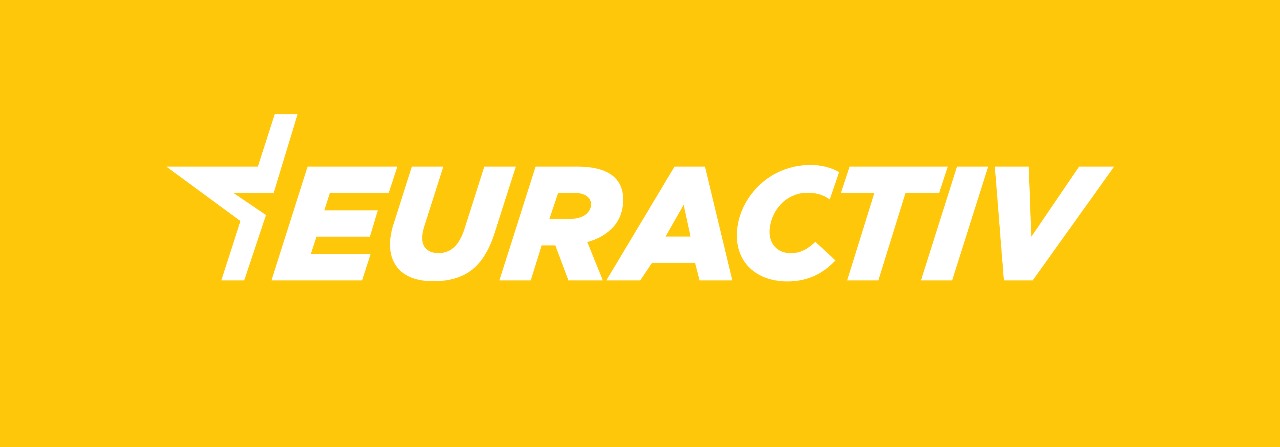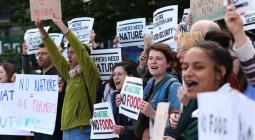The Brief – From Barroso to von der Leyen: Where next for the Green Deal?
When I joined Euractiv 20 years ago to cover the EU’s environment policies, the talk in Brussels was all about the trade-off between green policies and economic growth.
José Manuel Barroso, the Commission president at the time, coined a famous expression when he compared himself to a father looking after his three sons. One of them – the economy – was sick, so he had to take greater care of him and spend less time with the other two, the environment and social policy.
Back then, Barroso was fighting to pass a controversial EU law to restrict harmful chemicals, fiercely opposed by the German industry. The chemical law was eventually passed after an epic lobbying battle but it left deep marks in Brussels:
The fundamental trade-off between green policies and Europe’s industrial competitiveness had become a thing.
The global financial crisis of the late 2000s put the final nail in the coffin. The EU’s recently-launched carbon market, although a world first, was left deliberately depressed to allow time for the EU economy to recover.
As I draw the curtain on my two decades at Euractiv, these debates are now a thing of the past. Or so we thought.
When Ursula von der Leyen was nominated Commission president in 2019, she firmly put environmental policy at the top of her agenda to revive the EU’s economy.
“The European Green Deal is our new growth strategy,” von der Leyen said in a speech minutes before winning a confirmation vote in the European Parliament. “The faster Europe moves, the greater the advantage will be for our citizens, our competitiveness and our prosperity,” she argued.
According to Commission estimates published the year before, the EU’s wealth would increase by more than 2% if the Union’s emissions were slashed to net-zero by 2050. And fossil fuel imports would be cut by €2-3 trillion over the 20 years leading up to 2050.
The contrast with Barroso could not be any starker.
So how did it come about? The short answer is innovation.
Over the past 10-15 years, renewable energies – wind and solar – have become so cheap that policymakers were taken by surprise and were forced to revise their assumptions.
In March 2018, just as EU legislators were negotiating a package of clean energy laws, the Commission did something unprecedented: It produced an updated cost-benefit analysis of its legislative plans, essentially making the case for higher EU targets for renewables and energy efficiency.
Eventually, the EU adopted a 32% target for renewables by 2030, up from the 27% initially put forward by Brussels.
By that time, no one was surprised anymore to see the European Commission championing higher renewables, energy efficiency, or decarbonisation targets.
More surprising though was to see EU member states cheerleading from the sidelines. In the usual, well-choreographed Brussels playbook, the European Commission and Parliament would always fight for higher ambition on green policies until EU member states pour cold water on their plans.
In March 2018, the opposite happened for the first time. The EU’s 27 leaders urged the European Commission to come forward with a 2050 climate roadmap “by the first quarter of 2019”, months before a new Commission was due to be appointed.
Countries like Czechia, Hungary, and Poland expressed the usual reservations. But those were overcome surprisingly quickly, and in the end, the EU adopted a net-zero emissions reduction goal for 2050, with only Poland abstaining.
Policy developments have followed the same pattern since then. Last year, the EU raised its renewable energy target again – this time to 42.5% by 2030, from the initially proposed 40%. And, in all likelihood, it will adopt a 90% greenhouse gas reduction target for 2040.
All these political developments point to a decisive break from the green policies of the past.
Yet, some things haven’t changed in all those years. Chief among them is the EU’s persisting inability to connect the dots and align its green ambitions with its economic and budgetary policies.
A report published this week by the Institute for Climate Economics (I4CE), came up with a shocking finding: A gap of €406 billion remains to be filled annually in order to meet the EU’s 2030 climate goal.
Astonishingly, no one disputed those findings. In other words, the EU seems comfortable adopting ambitious climate goals without knowing whether the necessary funding would be available to meet them.
By design, the EU keeps failing to align its green ambitions with its wider economic policies. Just weeks ago, when the EU revised its fiscal rulebook, Germany stuck to its old habits and forced back EU rules imposing quantifiable debt reduction plans on member states.
And when the time comes to put money on the table, EU countries invariably get cold feet, refusing to increase the EU budget in a meaningful way or agree on new sources of revenue that would make EU programmes less dependent on national contributions.
After all, why give money to the EU when you have no control over the spending?
This kind of national short-sightedness has a flip side, however: The EU is totally helpless when it comes to articulating a proper industrial policy that benefits the 27 members as a whole.
Hobbled by budgetary constraints, the European Commission is structurally unable to implement redistributive policies. The EU’s cohesion programme is a good start, of course, but it’s like a drop of water on a hot plate, lacking the required scale.
As a result, the losers of the green transition – think coal or car industry workers – are left dependent on their national governments to provide a safety net for green policies that are “decided in Brussels”, fuelling discontent against the EU.
Worse, it obliges the European Commission to implement strict state aid rules to maintain a “level playing field” in the EU single market. Denmark has recently reminded the Commission about this, warning against the risk of imbalances caused by the temporary lifting of EU state aid rules decided during the COVID-19 crisis.
As the EU enters the next five-year mandate following the June European elections, the status quo appears more fragile than ever. Far-right parties are on the rise, driven by a feeling that it’s European elites who are imposing decisions from the top down.
With a war raging on Europe’s doorsteps, the EU needs to dramatically ramp up its defence capabilities.
On the green front, a global clean tech race is now firmly underway but Europe is losing ground to the US and China, who are more agile than the consensus-based EU and capable of throwing their full weight behind green industrial programmes – whether on wind, solar power, nuclear, or electric cars.
“We need a European sovereignty fund,” says Pascal Canfin, a French centrist lawmaker who chairs the European Parliament’s environment committee. For Canfin, this goes beyond climate policy. “It’s about security, it’s about sovereignty, it’s about being less vulnerable, improving our strategic autonomy.”
“If we don’t do it, we will miss our goals on Ukraine with all the consequences. We will miss our goals on defence, on digital, and on climate, with all the consequences.”
“And at the very end, if we miss those four, we will not be sovereign anymore”.
The Roundup
Public support from the West is growing for the Dutchman Mark Rutte to become NATO’s next secretary-general, but he will still need to secure crucial support among members from Eastern Europe.
Hungary and Sweden enhanced their military cooperation on Friday, just days before the Hungarian parliament is expected to vote on the Nordic country’s NATO bid on Monday.
The EU executive will unlock a total €137 billion in recovery and cohesion funds for Poland, which had been frozen due to concerns about the rule of law, EU Commission President Ursula von der Leyen announced on Friday in Warsaw.
The European Union plans to revoke sanctions against two Russian businessmen and a Slovak national associated with the pro-Kremlin biker group Night Wolves, whose case Prime Minister Robert Fico has repeatedly supported and discussed with top EU officials.
Swiss solar company Meyer Burger will close its Freiberg plant to focus on its US production sites, after years of posting losses, reducing the overall EU solar panel production capacity by about 10%.
A document sent by the Belgian Presidency of the EU Council to the EU delegations on the future of the bloc’s digital policy, dated 19 February and seen by Euractiv, argued that the implementation of already-adopted regulations should be prioritised over the creation of new laws.
A letter sent by member of European Parliament Paul Tang, seen by Euractiv, raises questions regarding the potential effects of the UK’s Data Protection Bill on the EU’s General Data Protection Regulation (GDPR).
The Catalonia region has decided to invest almost €500 million from EU funds to make its capital city more resilient to droughts, with two new desalination plants expected to come online by the end of the decade
Cover photo: The Brief is Euractiv's evening newsletter. [Illustration by Esther Snippe]





